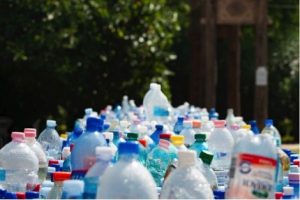4 Things to Know About New Jersey Recycling Laws

Image via Pexels
Get to Know the Recycling Laws Better and Simplify the Recycling Process
One thing is for certain: Recycling laws in the state of New Jersey are not the easiest to understand. That being said, there’s virtually no way to get around them—In the garden state, it is required by law that every resident and business recycles the mandatory, qualified items, which are determined by certain recycling areas, county legislation and a few statewide laws. Although the act of recycling betters the environment and reduces waste disposal costs, it can still be frustrating to navigate the tedious recycling laws and tasks in the state of NJ.
1. Solid Waste Regulations and Recycling Permits in NJ
Every state varies when it comes to defining recyclable materials. Living in NJ means that recycling exists under—and must adhere to—solid waste regulations. Some have an issue with this, since the whole point of recycling is to reuse appropriate materials. Nevertheless, it is important for those who wish to obtain an NJ recycling permit to familiarize themselves with solid waste regulations, which are not the easiest to grasp.
2. Four Categories of New Jersey Recyclable Materials
Due to the fact that there are so many different types of recyclable materials, the state of NJ has divided each type into a separate category—these include Class A, Class B, Class C and Class D. Recyclable materials in Class A consist of the traditional recyclable materials that are commonly recycled nationwide, including paper, cardboard, plastic, glass and even metal. Approval by the NJDEP is not required to recycle Class A materials. Class B contains construction and demolition materials, such as concrete, leaves and asphalt. Compost is the main material in the the Class C recyclable materials category—this type is usually laid out to compost over a period of time. Class D recyclable materials is full of miscellaneous items like batteries, consumer electronics and oil-based finishes.
3. NJ Recycling Exemption and Approval
Believe it or not, NJ recycling exemption is free of charge. It only requires an application with some paperwork. Recycling approval costs are another story, though, when it comes to recycling laws in New Jersey. Recycling approval costs can be broken down into a variety of separate charges, including consulting costs, application feeds, annual fees and ongoing fees.
4. Three Main Ways to Begin Recycling in NJ
Those who are trying to obtain a recycling license, permit or approval in New Jersey can begin recycling the right way by following various types of paths. The NJ recycling exemptions are for specific types of recycling centers and smaller projects. There are also NJ general recycling approvals, which are given to those who want to truly be in the recycling business—no doubt about it. These New Jersey general recycling approvals last for 5 years and can be renewed, altered or sold. Limited recycling approvals are only valid for Class B recyclable materials in NJ and were mainly created for one-time-deal activities. Although this process is easier than most of the others, it still takes up to four months to receive limited approval in the state of NJ.
Trust Cali Carting Inc. to Manage NJ Recycling Areas and Laws
Understanding the NJ recycling laws and recycling areas can be tough. When an individual or business has handled all of that and the process is said and done, contacting a reliable NJ full-service solid and waste company is a smart choice to make, so that they can help out with picking up and sorting through all the recyclable materials for you. Cali Carting Inc., located in Kearny, NJ, provides commercial dumpster rentals in NJ that involve waste and recycling pickup for NJ businesses with the options of front load, rear load and curbside pickup. Our commercial dumpster rentals offer cost effective management of popular recyclable items, making the recycling process easy and manageable for business owners in NJ. Contact Cali Carting Inc. by calling 201-991-5400 to inquire about these recycling services today.



